The China Open once again witnessed a dramatic "Hand of God" moment! Anisimova secured a win to prevent history from repeating itself!
Hand of God? Yes, exactly! Similar to the famous drama between young Serena Williams and Henin, this year’s China Open women’s singles saw a comparable dramatic battle unfold!

Before the match even began, tension was high between Anisimova and Paolini. Both players have been in excellent form this season: Anisimova was runner-up at both Wimbledon and the US Open, showing great momentum; Paolini was runner-up at last year’s French Open and Wimbledon, and this year won the Rome title and was runner-up in Cincinnati. This match was not only a clash of top ten players but also a battle between contrasting playing styles.
The two had only faced each other once before at the 2021 Parma tournament, where Paolini won in straight sets. Four years later, fans eagerly anticipated a fiery rematch.
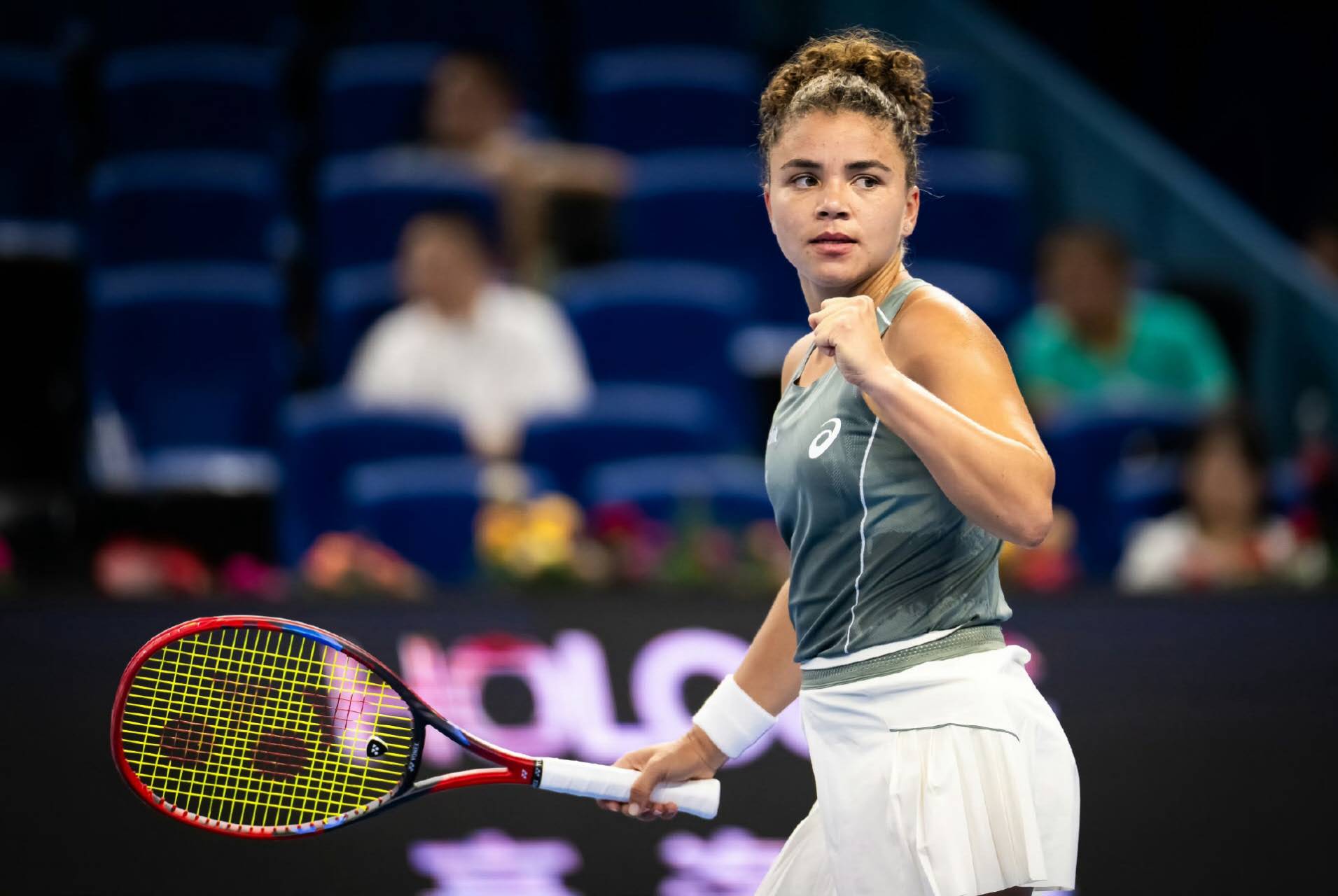
Before the match, tennis forums buzzed with predictions: “Who will dominate the match, Anisimova’s backhand or Paolini’s forehand?” Some fans believed, “Based on Anisimova’s performances in two Grand Slam finals this year, she should have the edge.”
As the match began, both players quickly found their rhythm. In the first set, neither gave an inch as the scoreline went back and forth. Anisimova broke serve first in the 7th game to lead 4-3. Paolini fought back, breaking Anisimova’s serve in the 10th game to level at 5-5. The set eventually went to a tiebreak, where Paolini showed steadier play to win 7-4 and take the first set.
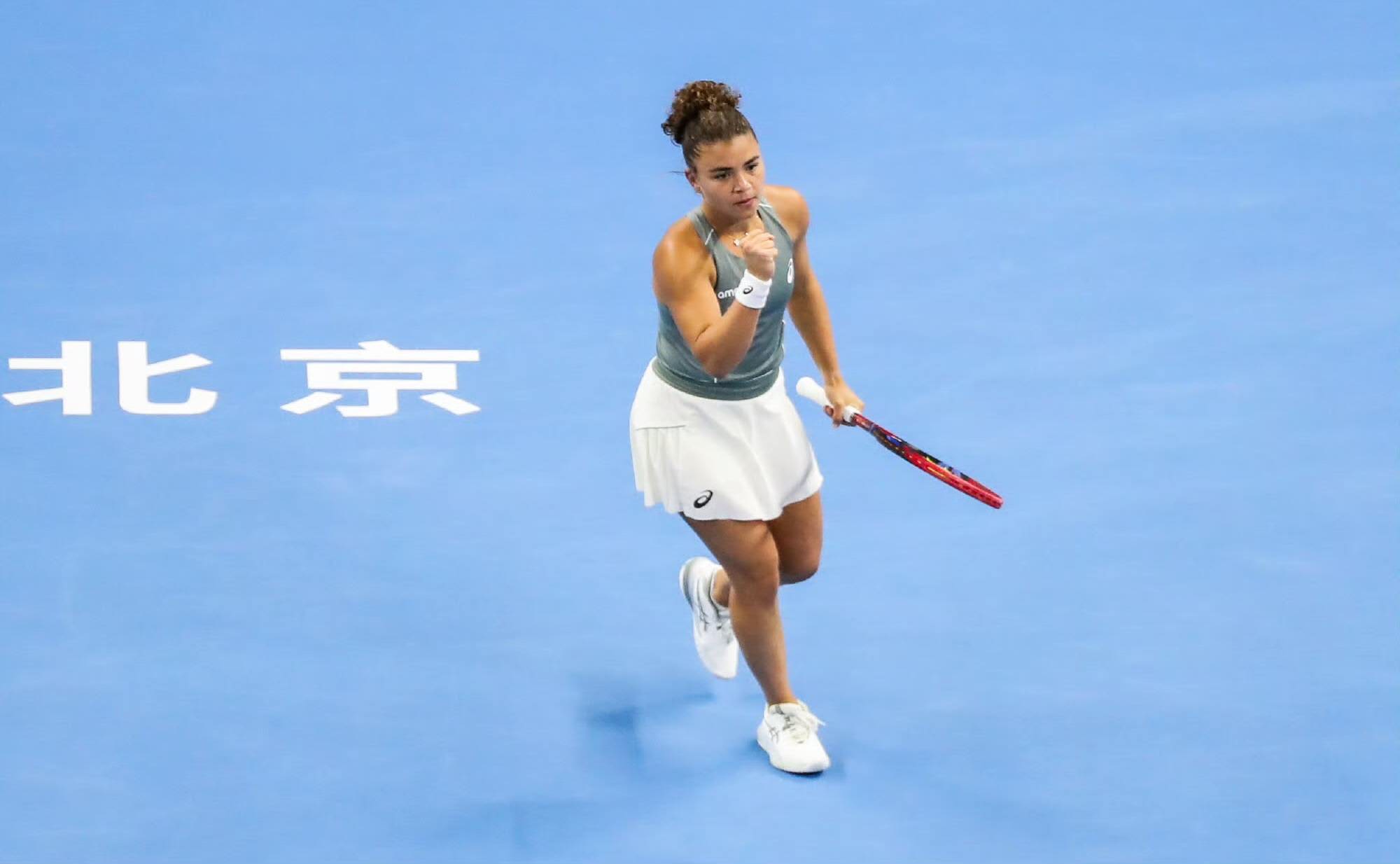
Notably, the first set alone lasted over an hour, highlighting the intensity of the contest.
At the end of the first set, the live chat exploded with comments. “The intensity of this match rivals a Grand Slam final!” one fan wrote. Another noted, “Anisimova’s backhand down the line is beautiful, but Paolini’s defense is superior.” A keen observer added, “Anisimova seems a bit impatient, making more unforced errors than usual.”
However, most fans remained hopeful and expressed confidence that Anisimova would adjust and mount a comeback, as she had done in other matches this year.
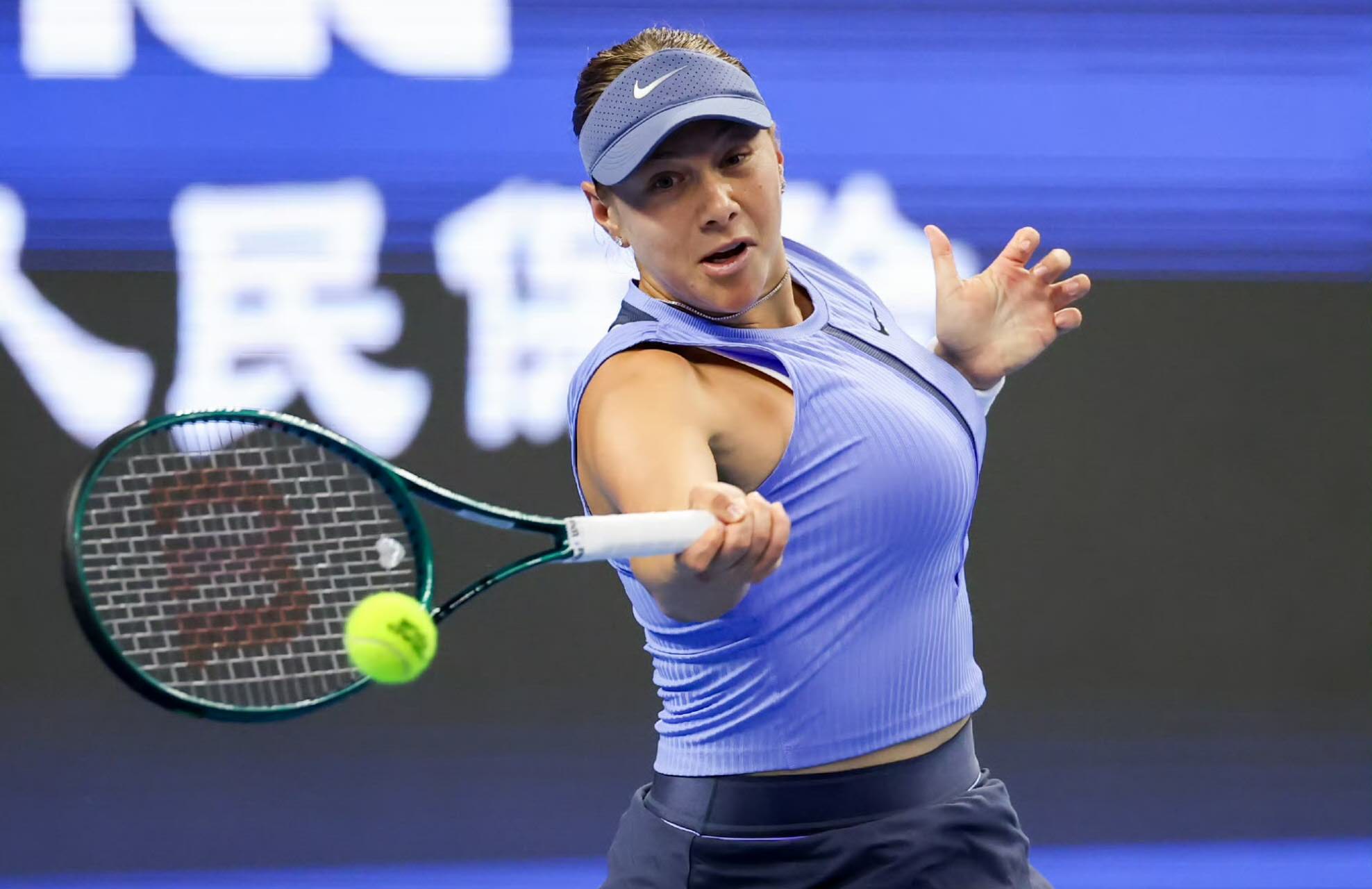
After losing the first set, Anisimova did not lose heart and launched a strong counterattack in the second set. She broke Paolini’s serve twice early on to take a 4-0 lead. Paolini broke back in the 5th game and held serve to narrow the gap to 2-4, but Anisimova held firm, serving out the set 6-3 to even the match.
The live chat flooded with excitement: “This is the Anisimova we want to see!” “Her resilience is amazing, coming back twice now shows her mental strength.”
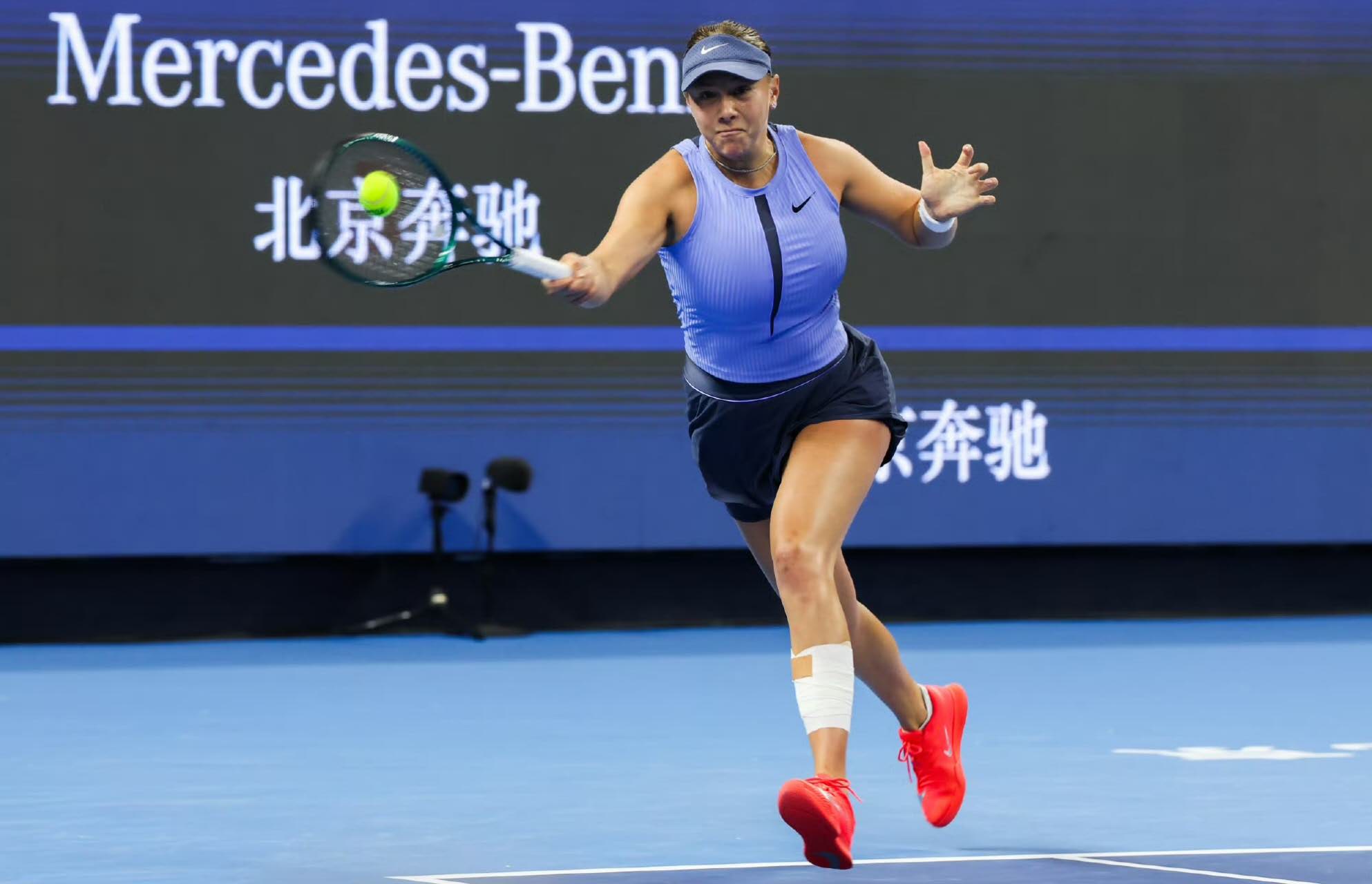
The deciding set began with even more tension. Both players exchanged breaks, keeping the score tight. The pivotal moment came in the 8th game when Anisimova faced immense pressure on her serve. After seven deuces and saving six break points, she finally held serve. However, the real controversy arose in her next service game after taking a 1-0 lead.
Facing a break point, Anisimova served an ace. As she prepared to serve again, the umpire suddenly called for a replay of the point, citing Paolini’s raised hand signaling she had coughed. Anisimova immediately argued with the umpire, visibly upset.
The live chat erupted: “This is so unfair!” Another fan commented, “Paolini’s cough was clearly tactical! Is this the tennis ‘Hand of God’ moment again?”
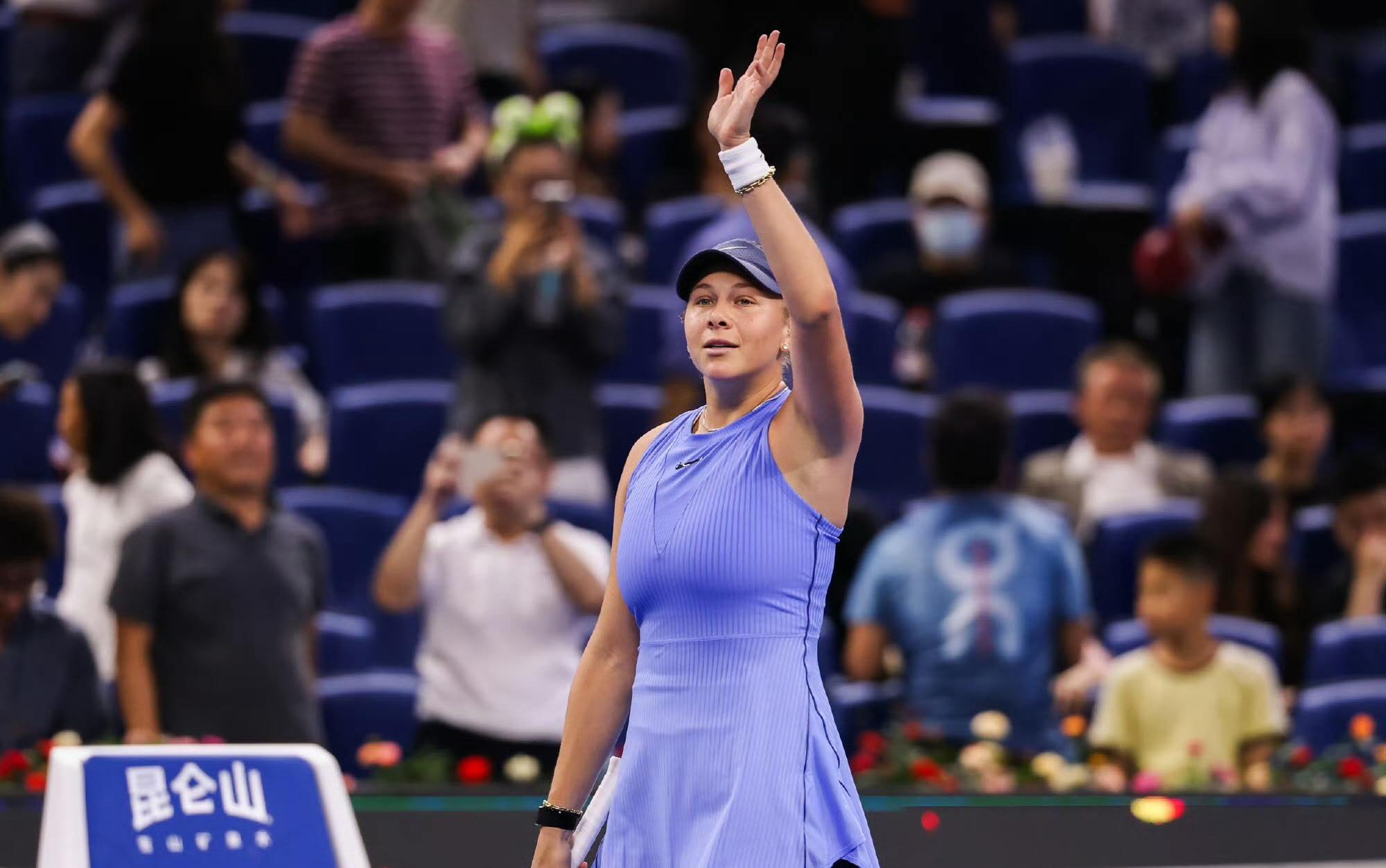
Although Anisimova eventually won that point, she ultimately lost her serve in that game.
This controversial decision inevitably brought to mind the famous “Hand of God” incident in tennis history.
In the 2003 French Open semifinal between young Serena Williams and Henin, Henin repeatedly signaled she was not ready to serve during a crucial moment in the final set, which went unnoticed by the umpire. Henin then won the point, creating one of the most disputed moments in tennis history. Serena eventually lost that match.
Unlike that day, Anisimova did not let history repeat itself. Despite the controversial call, she stayed focused, broke serve in the 9th game, and held serve in the 10th to win the set 6-4.
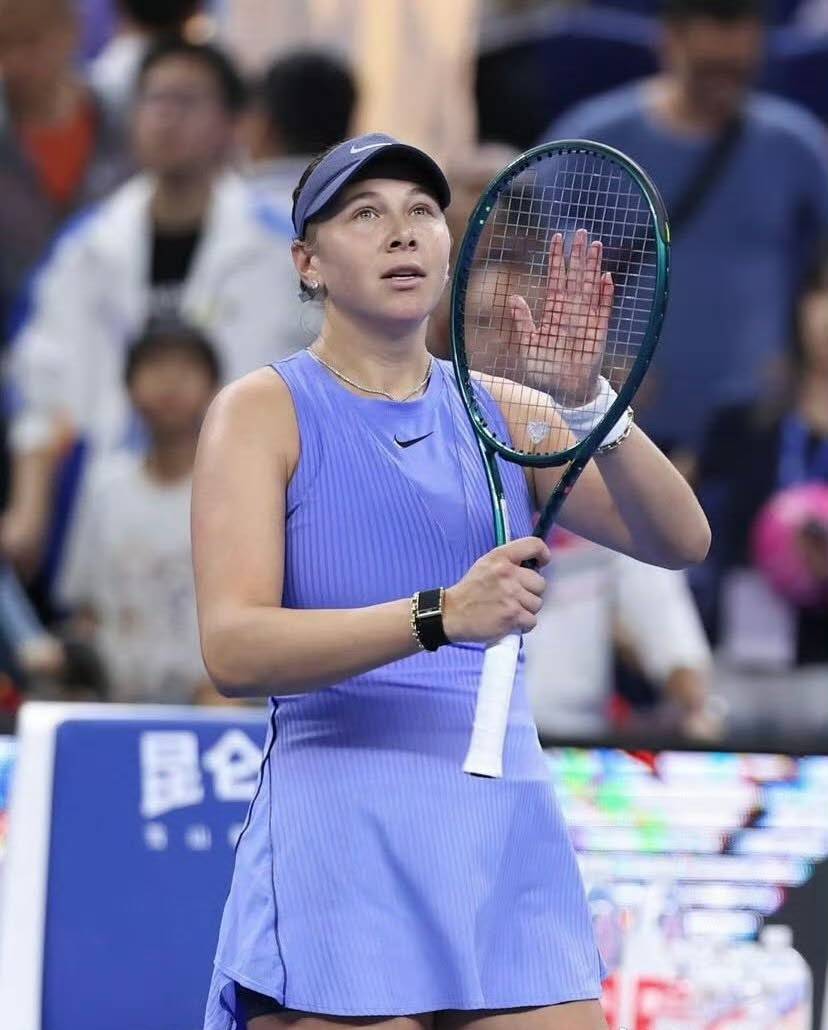
The full match lasted 2 hours and 47 minutes, with Anisimova overturning a 6-7(4), 6-3, 6-4 victory over Paolini to reach the China Open women’s singles semifinals.
After the match, social media discussions about the controversial call intensified. “The umpire’s decision ruined what should have been a perfect match,” a fan tweeted.
Another fan disagreed: “Paolini has the right to signal if disturbed; the umpire’s ruling was within the rules.”
A tennis commentator from Eurosport analyzed on Weibo: “Regardless of whether the umpire’s call was correct, Anisimova’s ability to quickly regain composure and win shows her top-level mental toughness.”
Most fans agreed: “From the double bagel loss in the Wimbledon final to these consecutive comebacks, Anisimova has truly matured.”

In the post-match press conference, Anisimova addressed the controversial moment: “I was very emotional because I thought it was a perfect ace, but I told myself not to let one point affect the whole match. I had to keep moving forward.” Regarding Paolini’s coughing signal, she maintained grace: “I didn’t hear her cough, but I believe she was feeling unwell. Things happen during matches; what matters is how you respond.”
She also thanked the crowd: “Their support gave me tremendous energy, especially after the controversy. Their encouragement helped me stay focused.”
A Sky Sports reporter commented: “This controversial moment makes us rethink the tennis rules on ‘distractions.’ But no matter what, Anisimova’s performance deserved this win.”
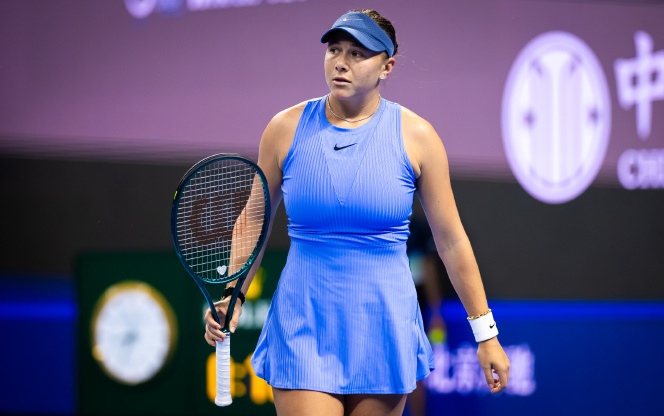
As the match ended, the controversy persisted, but Anisimova looked ahead. She reached the WTA 1000 semifinals for the third time in her career and secured a spot at the WTA Finals. In the semifinals, she will face second seed Gauff. If she maintains this form, she could go even further in the China Open.
For 24-year-old Anisimova, the growth from a double bagel defeat at Wimbledon to these recent comebacks is clear. As she has said multiple times this year: “Never give up, tennis will eventually reward you.”(Source: Tennis Home, Author: Lu Xiaotian)







 Links
Links
 Contact
Contact
 App
App


